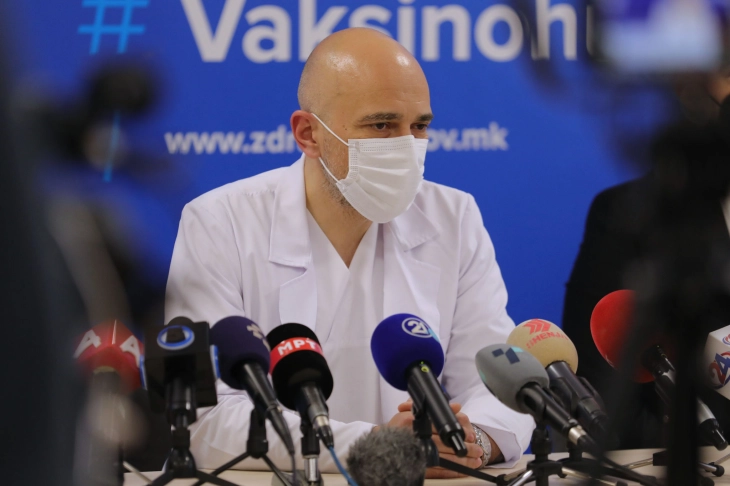Mehmedovikj for MIA: No need for panic, not expecting more cases of Crimean–Congo hemorrhagic fever in near future
- No need for panic over the new situation with the Crimean–Congo hemorrhagic fever, spokesperson of the Commission for Infectious Diseases, Zlate Mehmedovikj, told MIA on Tuesday.
- Post By Nevenka Nikolik
- 13:47, 8 August, 2023

Skopje, 8 August 2023 (MIA) - No need for panic over the new situation with the Crimean–Congo hemorrhagic fever, spokesperson of the Commission for Infectious Diseases, Zlate Mehmedovikj, told MIA on Tuesday.
He noted that there's no expectation to have more cases of Crimean–Congo hemorrhagic fever in the near future.
"As regards the situation, the symptoms and possible complications, what can be done to prevent the disease, the Public Health Institute (PHI) already came out with information. The Commission for Infectious Diseases fully supports everything PHI has done, the measures they took and recommendations they gave," Mehmedovikj stressed.
He added that from what they have seen, the first is a case of direct infection, and the second is likely transmission through contaminated blood.
"We do not expect more cases, although it is not the first time this type of disease has occurred in our country, specifically, we are talking about Crimean–Congo hemorrhagic fever. It has occurred in the past, it has also occurred in the region, and there will be more such incidental occurrences. However, this does not mean that we are on the verge of a new epidemic that will seriously threaten life and health," Mehmedovikj said.
Following the death of a 27-year-old woman of Crimean–Congo hemorrhagic fever on July 27, one of the employees at the Skopje-based Clinic for Infectious Diseases, who was identified as a medium-risk contact, has developed symptoms and tested positive for Crimean–Congo hemorrhagic fever (CCHF), said the Ministry of Health in a press release Monday.
The Ministry said the patient has been hospitalized at the Clinic, while the Public Health Institute (PHI) has established a team to carry out the necessary activities to prevent further spread of the disease.
Following the positive test of the 27-year-old woman in July, epidemiologists from the PHI identified all contacts in the family, the hospital and the emergency room and classified them according to risk, appropriately placing them under 14-day medical supervision.
The Ministry said the medical supervision lasts 14 days since the last contact with the infected person. The contacts of the first positive case will remain under supervision until August 10, 2023.
In the press release, the Ministry said the incubation period depends on the way in which the virus is transmitted. The incubation period is usually 1–3 days, with a maximum of 9 days, following an infection from a tick bite. While in the case of a transmission through infected blood or tissue, the period is usually between 5–6 days, with a maximum documented period of 14 days.
"The onset of the disease is sudden, with headaches, high fever, back pain, joint pain, stomach pain, and vomiting. Red eyes, flushed face, red throat, and red spots on the gums are also visible. Jaundice may occur, and in more severe cases, mood changes. As the disease progresses, large bruises can appear on the body, as well as nosebleeds. Recovery is slow," the Health Ministry adds in the press release. ssh/nn/
Photo: MIA archive







